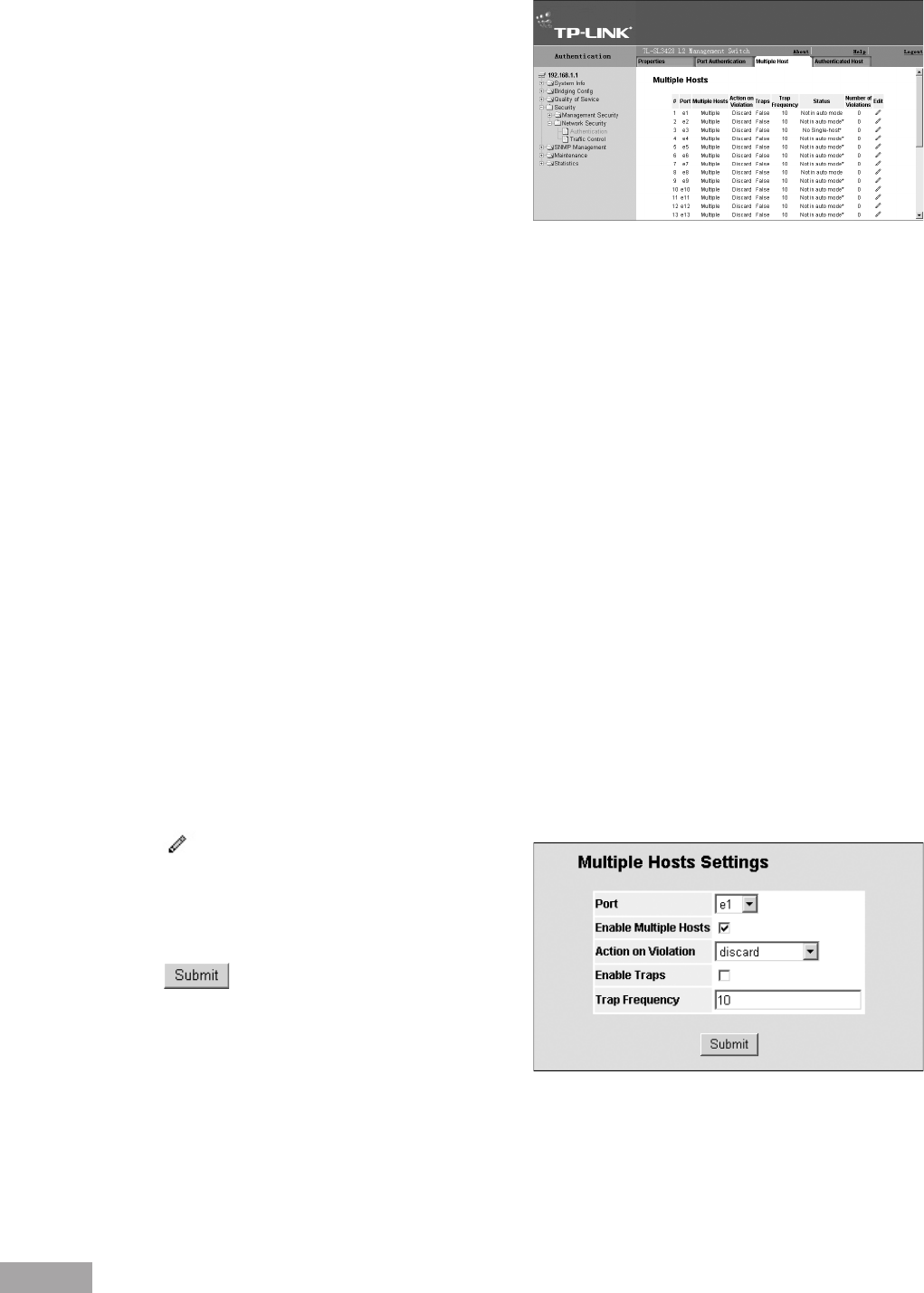
34
35
Figure 46: Multiple Hosts Page
The Multiple Hosts Page contains the following elds:
Port — Displays the port number for which advanced
port-based authentication is enabled.
Multiple Hosts — Indicates whether multiple hosts
are enabled. Multiple hosts must be enabled in order
to either disable the ingress-filter, or to use port-lock
security on the selected port. The possible eld values
are:
– Multiple — Multiple hosts are enabled.
– Disable — Multiple hosts are disabled.
Action on Violation — Denes the action to be applied to packets arriving in single-host mode, from a host whose MAC
address is not the supplicant MAC address. The possible eld values are:
– Forward — Forwards the packet.
– Discard — Discards the packets. This is the default value.
– Shutdown — Discards the packets and shuts down the port. The port remains shut down until reactivated, or until the
device is reset.
Traps — Indicates if traps are enabled for Multiple Hosts. The possible eld values are:
– True — Indicates that traps are enabled for Multiple hosts.
– False — Indicates that traps are disabled for Multiple hosts.
Trap Frequency — Denes the time period by which traps are sent to the host. The Trap Frequency (1-1000000) eld
can be dened only if multiple hosts are disabled. The default is 10 seconds.
Status — Indicates the host status. If there is an asterisk (*), the port is either not linked or is down. The possible eld
values are:
– Unauthorized — Indicates that either the port control is Force Unauthorized and the port link is down, or the port
control is Auto but a client has not been authenticated via the port.
– Not in Auto Mode — Indicates that the port control is Forced Authorized, and clients have full port access.
– Single-host Lock — Indicates that the port control is Auto and a single client has been authenticated via the port.
– No Single Host — Indicates that Multiple Host is enabled.
Number of Violations — Indicates the number of packets that arrived on the interface in single-host mode, from a host
whose MAC address is not the supplicant MAC address.
2. Click . The Multiple Host Settings Page opens:
Figure 47: Multiple Host Settings Page
3. Dene the elds.
4. Click . The multiple host settings are saved,
and the device is updated.
5.2.2.3 Dening Authentication Hosts
The Authenticated Hosts Page contains a list of
authenticated users.
To dene authenticated users:
1. Click System > Network Security > Authentication > Authenticated Hosts. The Authenticated Hosts Page opens:


















